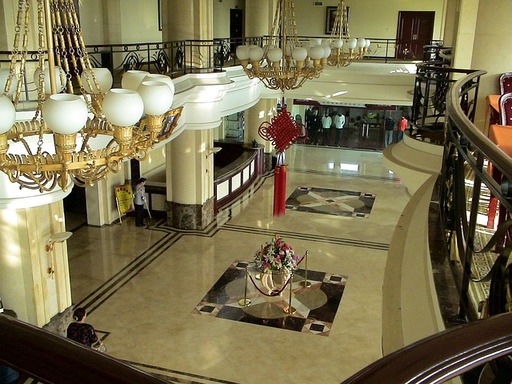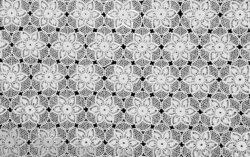
Welcome to the world of hotel housekeeping, where the careful practice of cleanliness blends seamlessly with the spirit of hospitality. In this overview, we explore the critical role that housekeeping plays in achieving unprecedented levels of guest satisfaction through the straightforward but profound act of maintaining perfect cleanliness. From the moment a guest enters the welcoming lobby to the peace and quiet of a freshly prepared guest room, the dedication to cleanliness becomes a silent but effective conductor orchestrating a harmonious stay, leaving a lasting impression on the guest’s overall experience.
The importance of a spotless hotel is paramount in the hospitality sector; it is not just a service; it is the cornerstone around which guest satisfaction is constructed. In this guide, we will delve into the many facets of Hotel Housekeeping and uncover the artistry that goes into making every space, from public areas to private rooms, a haven of cleanliness. It is thanks to these devoted efforts that hotels become havens where guests find refuge but also a heightened sense of comfort, safety, and delight. Come along on this exploration of how Hotel Housekeeping, with its unwavering dedication to cleanliness, becomes the silent architect of unforgettable guest experiences.
See also our post on How to Clean and Organize Your Art Studio: Creativity Meets Order
The Importance of Clean Hotels
1. First Impressions Matter
Cleanliness is the first thing guests notice. A well-maintained hotel creates a positive first impression, setting the stage for a comfortable and enjoyable stay.
2. Guest Safety and Well-being
A clean hotel is a safe hotel. Regular cleaning practices help prevent accidents, ensure guest safety, and contribute to an environment where guests feel secure and cared for.
3. Positive Guest Reviews
Cleanliness directly influences guest reviews. Hotels known for their cleanliness receive positive feedback, encouraging more bookings and building a positive reputation in the hospitality industry.
4. Repeat Business
Guests are likely to return to a clean and well-kept hotel. A positive experience, marked by cleanliness, encourages repeat business and cultivates guest loyalty.
5. Staff Morale
A clean hotel reflects a sense of pride among staff. Employees who work in a well-maintained environment are more likely to be motivated, contributing to a positive and harmonious work atmosphere.
How to Maintain Cleanliness in Guest Rooms
Immaculate Bedding and Linens
Clean and crisp bedding is essential. Housekeeping ensures that bed linens, pillowcases, and duvet covers are regularly changed and laundered, providing guests with a fresh and inviting sleeping space.
Spotless Surfaces and Furniture
Guest room surfaces demand attention. Housekeeping staff regularly dust and wipe down surfaces, including nightstands, desks, and chairs, maintaining a clean and visually appealing environment.
Pristine Bathrooms
Bathroom cleanliness is paramount. Housekeepers thoroughly clean and sanitize bathroom fixtures, including sinks, toilets, and showers, ensuring guests enjoy a hygienic and comfortable bathing space.
Well-Organized Spaces
A clutter-free room contributes to cleanliness. Housekeeping staff organize guest belongings, fold clothes, and arrange items neatly, creating a visually pleasing and orderly space.
Attention to Details
Details matter in guest rooms. Housekeepers pay attention to small but crucial details, such as remote controls, doorknobs, and light switches, ensuring that every corner is thoroughly cleaned and sanitized.
Public Spaces and Common Areas
Inviting Lobby and Reception
The hotel lobby is a welcoming space. Regular cleaning of reception desks, seating areas, and floors ensures that guests experience a clean and organized entry into the hotel.
Clean Hallways and Corridors
Hallways are high-traffic areas. Housekeeping staff regularly vacuum, mop, and clean hallways, maintaining a fresh and hygienic passage for guests moving throughout the hotel.
Elevators and Stairwells
Elevators and stairwells require regular attention. Housekeepers ensure that these spaces are cleaned, deodorized, and free from any debris, contributing to a clean and safe vertical transition for guests.
Well-Kept Dining Areas
Hotel restaurants demand cleanliness. Housekeeping staff pay special attention to dining areas, including tables, chairs, and buffet stations, ensuring that guests enjoy a hygienic and pleasant dining experience.
Tidy Fitness and Recreational Spaces
Gyms and recreational areas are maintained with care. Housekeepers clean and sanitize fitness equipment, poolside lounges, and other recreational spaces, providing guests with a clean environment for leisure activities.
Maintenance of Hotel Amenities
Sparkling Swimming Pools
Pool areas require meticulous cleaning. Housekeeping staff maintain clean pool water, regularly skim debris, and clean poolside furniture, ensuring a pleasant and hygienic experience for guests.
Pristine Spa and Wellness Facilities
Wellness facilities demand cleanliness. Housekeepers ensure that spa rooms, saunas, and massage areas are thoroughly cleaned and sanitized, creating a serene and hygienic atmosphere for guests seeking relaxation.
Clean Business and Conference Centers
For business travelers, a clean workspace is crucial. Housekeeping staff pay special attention to conference rooms, business centers, and meeting spaces, ensuring a tidy and organized environment for corporate guests.
Attention to In-Room Amenities
Housekeepers check and replenish in-room amenities. From coffee makers to toiletries, ensuring that these items are clean and well-stocked contributes to a positive guest experience.
Maintenance of Technology
Hotels increasingly rely on technology. Housekeeping staff ensure that TVs, air conditioning units, and other electronic devices in guest rooms are clean, functional, and contribute to a comfortable stay.
Sustainable and Eco-Friendly Practices
Environmentally Conscious Cleaning Products
Housekeeping embraces eco-friendly cleaning products. Using environmentally conscious supplies minimizes the hotel’s impact on the environment and aligns with the growing preference for sustainable practices.
Linen and Towel Reuse Programs
Hotels implement linen and towel reuse programs. Housekeeping communicates these initiatives to guests, contributing to water and energy conservation efforts while maintaining cleanliness standards.
Energy-Efficient Cleaning Practices
Housekeeping can adopt energy-efficient practices. Using energy-efficient equipment and lights during cleaning routines contributes to reduced energy consumption and environmental responsibility.
Waste Management Strategies
Efficient waste management is crucial. Housekeeping staff segregate waste, promote recycling, and follow responsible disposal practices, contributing to a clean and eco-friendly hotel environment.
Collaboration for Sustainability
Housekeeping collaborates with hotel management to implement sustainable practices. This may include jointly developing initiatives to reduce waste, conserve energy, and promote overall environmental responsibility.
See also our post on How to Clean and Organize Your Home Bar: Mixology Meets Neatness
Emergency Cleaning Protocols
Swift Response to Spills
Emergency cleaning protocols include a swift response to spills. Housekeeping staff are trained to address spills promptly, preventing accidents and maintaining a clean and safe environment.
Illness Outbreak Protocols
In the event of an illness outbreak, hotels implement specific cleaning protocols. Thorough cleaning and disinfection of affected areas help prevent the spread of illnesses among guests and staff.
Pest Control Measures
Pest control is essential for maintaining a clean hotel environment. Regular inspections, sealing entry points, and addressing pest issues promptly contribute to a pest-free guest experience.
Weather-Related Cleaning
Weather-related challenges, such as mud or snow, require specific cleaning protocols. Regular maintenance and prompt cleaning during adverse weather conditions ensure a safe and clean hotel environment.
Collaboration with Staff and Guests
Effective communication and collaboration with staff and guests are crucial for implementing emergency cleaning protocols. Training and involving staff members and guests in emergency procedures contribute to a swift and effective response.
Ongoing Training and Quality Assurance
Continuous Staff Training
Housekeeping staff undergo continuous training. Regular updates on cleaning protocols, new technologies, and industry best practices ensure that staff members are equipped to maintain high cleanliness standards.
Quality Assurance Programs
Hotels implement quality assurance programs. Regular inspections, guest feedback, and mystery shopper programs contribute to ongoing evaluations of cleanliness standards, allowing for continuous improvement.
Feedback Mechanisms
Guest feedback is valued. Establishing easy and accessible mechanisms for guests to provide feedback on cleanliness ensures that the hotel can address any concerns promptly and maintain high satisfaction levels.
Recognition and Rewards
Recognizing and rewarding exemplary housekeeping efforts boost morale. Programs that acknowledge outstanding cleanliness and service contribute to a motivated and dedicated housekeeping team.
Collaboration with Other Departments
Housekeeping collaborates with other hotel departments. Open communication with front desk staff, maintenance, and management ensures a coordinated effort to maintain cleanliness and guest satisfaction.
See also our post on How to Clean and Organize Your Home Library: Literary Order
Conclusion
At the end of the day, hotel housekeeping is a complex dance of devotion in which every mopped floor and disinfected surface enhances the guest experience. From the time guests arrive in the lobby to their stay in immaculate rooms, and from dining areas to leisure areas, all facets of hotel cleanliness are critical. Housekeeping personnel, hotel management, and guests collaborate to improve guest satisfaction by maintaining a high standard of cleanliness. It is in this painstaking attention to detail that hotels become more than just places to stay; they become beloved places where cleanliness is more than just a service.







